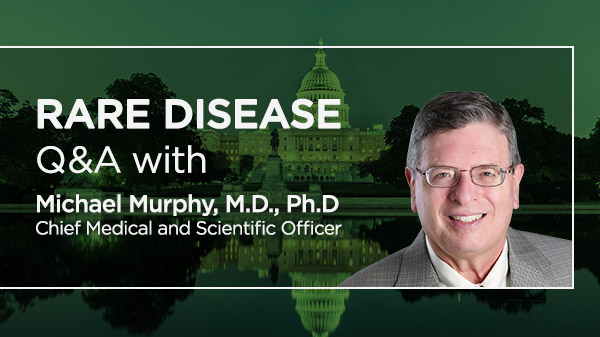
In advance of the World Orphan Drug Congress USA (WODC), Talking Trials sat down for a Q&A with WODC roundtable host, Michael Murphy, M.D., Ph.D., Chief Medical and Scientific Officer for Worldwide Clinical Trials. Enjoy this preview of the roundtable, titled, “When the Sum Is Greater Than the Parts: Academic, Pharmaceutical and CRO Collaboration in Orphan Disease Drug Development.”

Why is collaboration so important in rare disease clinical trials?
By its very nature, rare disease clinical research must address innumerable uncertainties, from patient diagnostics through clinical trial duration, the nature of measures, and unique methods of analyses. Rare disease clinical trials frequently cannot exploit prior art because in many cases there are no established methods, except those that we might indirectly borrow from other disease targets. In orphan diseases, the need for an integrative effort across functional groups is much more acute, as virtually we are defining the research space, perhaps setting precedent for other therapeutic indications in the process. Indeed, there is no other field of endeavor in which the importance of linking drug discovery to drug development to commercialization looms so large, and this importance is reflected in the diversity of topics planned for the WODC 2018 meeting in Maryland. In rare disease clinical trials, there is an urgent need for creation of a strategic “matrix” structure among organizations, one in which various functional groups become mutually supportive throughout the entire program of clinical research and stay with their program strategically. We are well beyond provision of simply transactional services.
From the perspective of an orphan disease CRO, what’s hardest about this collaboration?
Over many years of engaging in orphan disease drug development, challenges that require the most diligence and most attention fundamentally have been related to process rather than clinical and scientific content. In some circumstances, contributors to rare disease clinical trials previously have worked in functional silos in which tasks are highly compartmentalized – an assembly line, if you will, rather than an interactive discussion across functional areas with adjustments and recalibration. The effective integration of academia, the pharmaceutical industry, and orphan disease CRO services requires a team structure which is dynamic and ever-changing. Orphan disease research is best served by strategic rather than transactional engagements.
The organizational structures which seem to work best adapt to the needs of the rare disease clinical trial program and demand continuity of service for the duration of the program. Although team membership remains the same for the clinical trial’s duration, leadership within the team shifts based upon the challenges encountered. For example, although all members may contribute insights on site selection, the final determination must heavily weigh the opinion of those responsible for clinical study operations and data integrity given the overall objectives of the rare disease clinical trial. For example, and only as an illustration, the best centers for demonstration of proof of concept (e.g., target engagement study) might not be the best centers to inform “real-world” evidence for product value under an assumption that market authorization will occur with good formulary placement and levels of reimbursement. These data are highly complementary, but they may be acquired through different experimental designs and thus different contributing centers.
Where are the opportunities for innovation within rare disease clinical trials?
An ability to exploit orphan drug regulations, “fast-track status,” and negotiate the “substantial evidence of effectiveness” criterion and FDA breakthrough drug designation seems to be essential. Specifically, the rules honed over many decades of research and development for traditional indications need to be re-examined through a prism in which traditional clinical study designs and regulatory approaches may not be applicable. Having that seasoned perspective is invaluable – with “eyes on heaven but both feet firmly on the ground.” However, when an individual on the team not only brings a pedigree of clinical research to the table but also can step away from that experience and “imagine possibilities,” then occasionally magic can occur. It facilitates innovation and creativity in rare disease clinical trials.
The Uncommon Rare Disease CRO
This innovative approach to orphan disease clinical trials is part of Worldwide’s mission to change how the world experiences CROs – in the best possible way. We never compromise on science or safety. We’re never satisfied with the status quo. We’re the Cure for the Common CRO. Please connect with us through our general inquiry form to connect with Dr. Murphy at WODC USA in Oxon Hill, MD or to see what Worldwide Clinical Trials can do for you.


